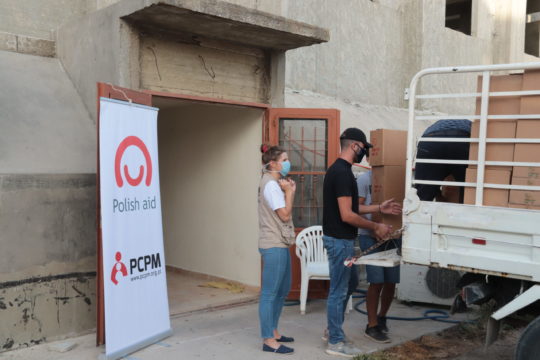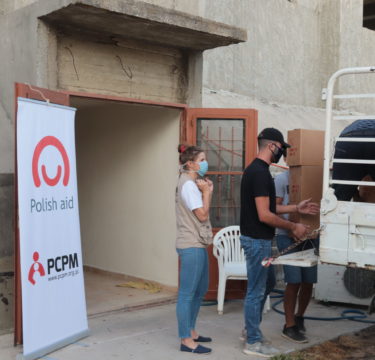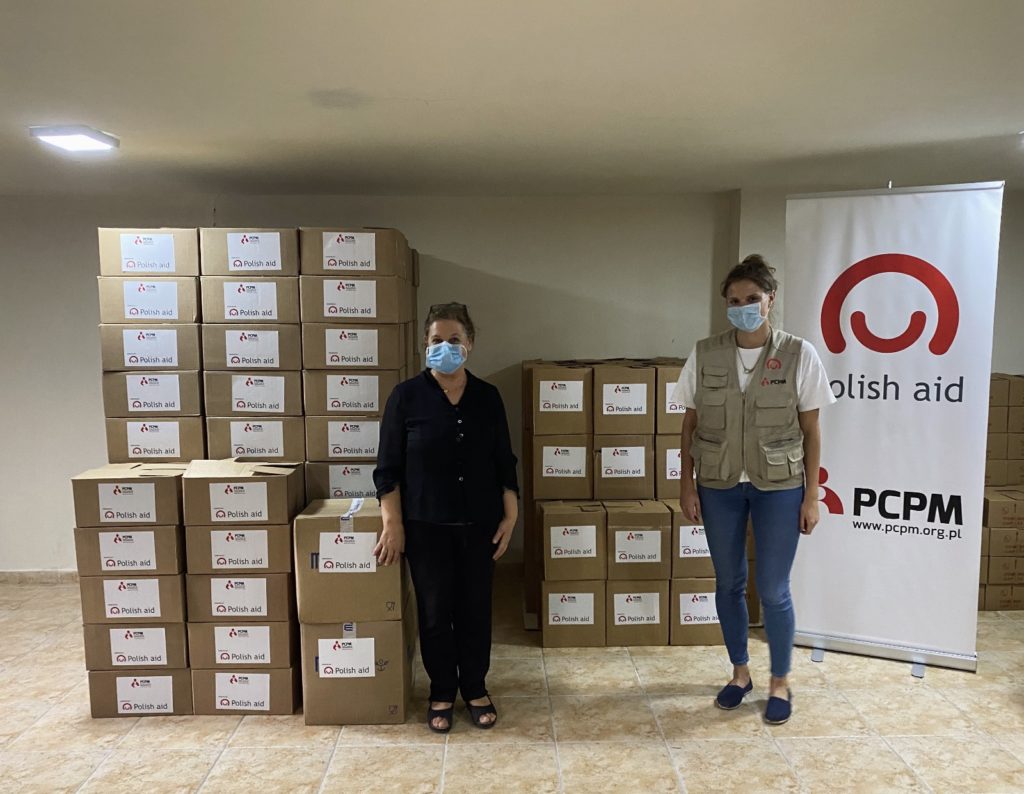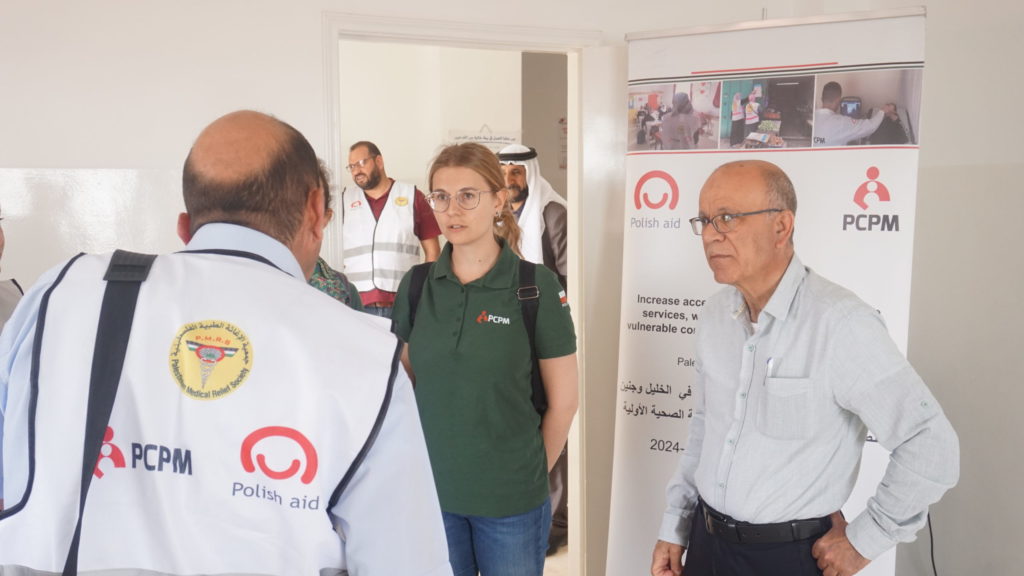Empathy in the veins, help in the genes – International Women’s Day


Women, often associated with sensitivity, care, and determination, frequently pursue careers in caregiving sectors. On the occasion of International Women’s Day, we present profiles of women who help others and those who benefit from this aid. Their mutual support, based on the principle of “pay it forward,” contributes to positive changes in society.
Ewa Grodek, the coordinator of educational projects at the Polish Center for International Aid (PCPM), explains why she chose this profession: “I think it’s in my blood. I simply brought it from home.”
Before starting her career in this field, empathy, interest in the world, and the influence of her immediate environment were key factors.
“In my case, a lot depended on my family and where I grew up. That’s where my sensitivity came from. I have an inner radar that picks up on others’ needs,” says Grodek. This sensitivity didn’t allow her to remain indifferent to information about the war in Syria and the refugee crisis in Lebanon, which ultimately led her to PCPM.
Ewa Jakutajć, the coordinator of the Palestinian project, began her journey with PCPM through volunteering. She recalls being involved in numerous NGOs during her school and university years. It was then that she first visited the West Bank, where she lived for half a year and fell in love with the region.

Both Ewa Grodek and Ewa Jakutajć were professionally engaged in humanitarian aid, both starting in the Middle East.
“At first, it was basic humanitarian aid for Syrian refugees in Lebanon—food, shelter. Over time, we moved to what’s called development aid, which has more lasting effects. I had the opportunity to lead the first such project in Lebanon, which involved improving sanitary infrastructure, providing solar lighting, and collaborating with local authorities,” recalls Ewa “Grodek”.
This experience proved invaluable when the full-scale war broke out in Ukraine. The entire PCPM team became involved in helping Ukrainian refugees.
I could use the knowledge I gained to build a crisis response system, including short-term employment programs that evolved into long-term projects supporting teachers from Ukraine. They help Ukrainian children in Polish schools,” says Grodek.
In 2024, thanks to PCPM, 360 Ukrainian teachers found employment in the Polish education sector. The foundation also supported over 450 individuals with diploma recognition and postgraduate studies, and 386 people participated in Polish language courses.
Currently, PCPM plans to help another 800 Ukrainian teachers meet the requirements necessary to work in Polish schools. Assistance with diploma recognition continues, implemented by the Unbreakable Ukraine Foundation (UUF), which also supports postgraduate and master’s studies. Both foundations offer Polish language courses and career counseling.
Pay It Forward
When the war broke out, Ukrainian teachers not only lost their jobs but also their sense of stability. “I didn’t know what to do next. In Poland, I started as a caregiver, but I returned to teaching thanks to the foundation’s support,” says one participant in PCPM’s program. Thanks to short-term employment projects and then diploma recognition, hundreds of Ukrainian teachers could return to their profession. Now they teach children who, like them, suddenly found themselves in a foreign country.
Medicine on Wheels
The “pay it forward” principle also operates on the West Bank, where PCPM aims to improve access to healthcare. The foundation trains medical personnel and volunteers and supports mobile clinics, or “clinics on wheels,” which reach areas with limited access to healthcare in the Jenin and Hebron districts.
“Every day, doctors from the mobile clinics get into large vehicles filled with equipment and medications to reach people who need care,” explains Ewa Jakutajć.
The team includes a primary care physician, a gynecologist, and a laboratory technician. Jakutajć notes that needs are changing: “Initially, there was a lack of infrastructure; now there’s a shortage of basic medications. We receive calls daily saying something is missing and patients don’t have access to care. We support mobile clinics because they are the only form of treatment for many people.” The mobile clinics reach about 30 locations on the West Bank with difficult access to healthcare.

The next step is implementing a centralized medical registration system, allowing for the creation of electronic patient records containing full medical histories. These systems will operate in 9 mobile and 4 stationary clinics. Additionally, there are plans to modernize telemedicine, enabling access to medical help for people living in hard-to-reach, isolated areas, 7 days a week, 12 hours a day.
Being Like a Doctor
Ewa Grodek, asked how to help in difficult conditions when you can’t help everyone and hear many tough stories, compares this situation to working in medicine.
“I couldn’t be a professional in my job if sensitivity completely took over. It’s a bit like a surgeon crying every time they operate or receive a patient in the ER. In our work, it’s about preparing the right tools and planning aid distribution so that everything goes as smoothly as possible and as many people as possible can benefit from support,” explains Ewa Grodek from PCPM.
Statistically, Aid is a Woman’s Domain
Research consistently shows that women dominate careers related to care and aid. For example, in Poland, according to the Central Statistical Office, women make up over 80% of all nurses and midwives and a significant majority of social workers and early childhood educators. Similar trends are observed worldwide. This highlights a strong link between female empathy and career choice, where caring for others is a priority. These statistics are also reflected in PCPM, where more women work than men.
This work, according to Ewa Grodek, combines the possibility of fulfilling oneself in a job and profession with achieving personal goals while doing something for another person.
“Challenging, but very rewarding,” summarizes Ewa Jakutajć.